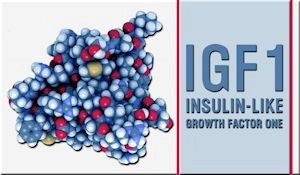Introduction to Genotropin Therapy
Genotropin, a recombinant human growth hormone, has been a cornerstone in the management of growth hormone deficiency (GHD) in both pediatric and adult patients. As young males with GHD transition from pediatric to adult care, it is crucial to implement effective strategies to ensure continuity of care and optimal health outcomes. This article outlines key approaches to managing this transition using Genotropin therapy, tailored specifically for American males.
Understanding Growth Hormone Deficiency
Growth hormone deficiency in males can lead to a variety of symptoms, including short stature, decreased muscle mass, increased fat mass, and reduced bone density. These symptoms can significantly impact quality of life and overall health. Genotropin therapy aims to replace the missing hormone, helping to mitigate these effects and support normal growth and development.
Strategies for a Smooth Transition
Transitioning from pediatric to adult care is a critical phase for patients with GHD. The following strategies can help ensure a seamless transition:
1. **Early Planning and Communication**: Begin planning the transition well in advance. Effective communication between pediatric and adult endocrinologists is essential. This ensures that the adult care team is fully informed about the patient's medical history, current treatment regimen, and any specific needs or concerns.
2. **Patient and Family Education**: Educate patients and their families about the importance of continuing Genotropin therapy into adulthood. Highlight the potential consequences of discontinuing treatment prematurely, such as reduced muscle mass and increased risk of cardiovascular disease.
3. **Individualized Treatment Plans**: Develop an individualized treatment plan that takes into account the patient's specific needs and goals. Regular monitoring and adjustments to the Genotropin dosage may be necessary to optimize outcomes.
4. **Psychosocial Support**: Transitioning to adult care can be emotionally challenging. Providing psychosocial support, including counseling and support groups, can help patients cope with the changes and maintain adherence to their treatment regimen.
Monitoring and Adjusting Genotropin Therapy
Once transitioned to adult care, ongoing monitoring is crucial to assess the effectiveness of Genotropin therapy and make necessary adjustments. Key monitoring parameters include:
- **Growth and Body Composition**: Regular assessments of height, weight, and body composition can help track the patient's progress and response to treatment.
- **Bone Density**: Monitoring bone density is important, as GHD can lead to osteoporosis. Genotropin therapy can help improve bone density, reducing the risk of fractures.
- **Metabolic Parameters**: Regular checks of lipid profiles and glucose levels are essential, as GHD can increase the risk of metabolic disorders.
- **Quality of Life**: Assessing the patient's quality of life through standardized questionnaires can provide valuable insights into the overall impact of Genotropin therapy.
Challenges and Solutions
Despite the benefits of Genotropin therapy, several challenges may arise during the transition to adult care. These include:
- **Adherence Issues**: Young adults may struggle with adherence to their treatment regimen due to lifestyle changes or lack of understanding about the importance of continued therapy. Regular follow-up appointments and the use of reminder systems can help improve adherence.
- **Insurance and Financial Barriers**: The cost of Genotropin therapy can be a significant barrier for some patients. Working with insurance providers and exploring financial assistance programs can help mitigate these challenges.
- **Healthcare System Navigation**: Navigating the adult healthcare system can be daunting. Providing patients with resources and guidance on how to access care can facilitate a smoother transition.
Conclusion
Transitioning growth hormone deficient patients to adult care is a complex process that requires careful planning and coordination. By implementing the strategies outlined above, healthcare providers can help ensure that American males with GHD continue to receive the benefits of Genotropin therapy throughout their adult lives. With proper management, these patients can achieve optimal health outcomes and maintain a high quality of life.
Contact Us For A Fast And Professional Response

- Genotropin's Impact on Lipid Profiles in American Men with Growth Hormone Deficiency [Last Updated On: February 24th, 2025] [Originally Added On: February 24th, 2025]
- Unveiling the Potential of Genotropin: A Comprehensive Review of Clinical Trials and Outcomes [Last Updated On: March 3rd, 2025] [Originally Added On: March 3rd, 2025]
- Exploring the Impact of Genotropin on Metabolic Health in American Adult Males [Last Updated On: March 12th, 2025] [Originally Added On: March 12th, 2025]
- Unveiling the Potential of Genotropin in Managing Idiopathic Short Stature Among American Males [Last Updated On: March 15th, 2025] [Originally Added On: March 15th, 2025]
- Unveiling the Synergy: Genotropin's Role in Treating Growth Hormone Deficiency Amidst Sleep Disorders [Last Updated On: March 16th, 2025] [Originally Added On: March 16th, 2025]
- Unveiling the Respiratory Benefits of Genotropin in Growth Hormone Deficient Males [Last Updated On: March 16th, 2025] [Originally Added On: March 16th, 2025]
- Exploring the Therapeutic Potential of Genotropin in Treating Growth Hormone Deficiency and Osteoporosis in American Males [Last Updated On: March 16th, 2025] [Originally Added On: March 16th, 2025]
- Unleashing Potential: Genotropin's Impact on Exercise Capacity in Growth Hormone Deficient American Males [Last Updated On: March 16th, 2025] [Originally Added On: March 16th, 2025]
- Unlocking the Potential of Genotropin Therapy: Overcoming Psychological Barriers in American Males [Last Updated On: March 16th, 2025] [Originally Added On: March 16th, 2025]
- Exploring the Impact of Genotropin on Bladder Function in American Males with Growth Hormone Deficiency [Last Updated On: March 16th, 2025] [Originally Added On: March 16th, 2025]
- Genotropin: Enhancing Life Quality in Adults with Childhood-Onset Growth Hormone Deficiency [Last Updated On: March 17th, 2025] [Originally Added On: March 17th, 2025]
- Genotropin's Impact on Cardiovascular Health in American Males with Growth Hormone Deficiency [Last Updated On: March 17th, 2025] [Originally Added On: March 17th, 2025]
- Genotropin's Role in Enhancing Intestinal Adaptation for Short Bowel Syndrome Treatment [Last Updated On: March 18th, 2025] [Originally Added On: March 18th, 2025]
- Genotropin Therapy Transition: From Pediatric to Adult Care for American Males [Last Updated On: March 18th, 2025] [Originally Added On: March 18th, 2025]
- Strategies to Enhance Genotropin Therapy Compliance in American Males with GHD [Last Updated On: March 19th, 2025] [Originally Added On: March 19th, 2025]
- Genotropin's Efficacy in Treating Growth Disorders in American Males: A Comprehensive Review [Last Updated On: March 19th, 2025] [Originally Added On: March 19th, 2025]
- Genotropin: Understanding Pharmacokinetics and Pharmacodynamics for Growth Hormone Deficiency Treatment [Last Updated On: March 20th, 2025] [Originally Added On: March 20th, 2025]
- Genotropin Enhances Cognitive Function in American Males with Growth Hormone Deficiency [Last Updated On: March 20th, 2025] [Originally Added On: March 20th, 2025]
- Genotropin: Enhancing Elderly Men's Vitality with Growth Hormone Therapy [Last Updated On: March 20th, 2025] [Originally Added On: March 20th, 2025]
- Genotropin: Enhancing Growth in SGA Children and Improving Quality of Life [Last Updated On: March 20th, 2025] [Originally Added On: March 20th, 2025]
- Genotropin: Revolutionizing Hypopituitarism Treatment for American Males [Last Updated On: March 21st, 2025] [Originally Added On: March 21st, 2025]
- Debunking Myths: Understanding Genotropin Therapy for American Males [Last Updated On: March 21st, 2025] [Originally Added On: March 21st, 2025]
- Genotropin Enhances Immune Function in Growth Hormone Deficient American Males [Last Updated On: March 22nd, 2025] [Originally Added On: March 22nd, 2025]
- Genotropin Therapy for American Males: Benefits, Side Effects, and Management Strategies [Last Updated On: March 22nd, 2025] [Originally Added On: March 22nd, 2025]
- Genotropin: Effective Treatment for Growth Hormone Deficiency Due to Genetic Mutations [Last Updated On: March 22nd, 2025] [Originally Added On: March 22nd, 2025]
- Genotropin Therapy: Enhancing Growth in American Males with GHD [Last Updated On: March 23rd, 2025] [Originally Added On: March 23rd, 2025]
- Genotropin: Cost-Effective GHD Treatment for American Males [Last Updated On: March 23rd, 2025] [Originally Added On: March 23rd, 2025]
- Genotropin: Enhancing Growth and Quality of Life in Cystic Fibrosis Patients with GHD [Last Updated On: March 23rd, 2025] [Originally Added On: March 23rd, 2025]
- Genotropin's Efficacy in Treating GHD Post-TBI in American Males: A Review [Last Updated On: March 24th, 2025] [Originally Added On: March 24th, 2025]
- Genotropin Enhances Skin Health in American Men with Growth Hormone Deficiency [Last Updated On: March 24th, 2025] [Originally Added On: March 24th, 2025]
- Genotropin's Impact on Growth Hormone Deficiency in American Males with Down Syndrome [Last Updated On: March 24th, 2025] [Originally Added On: March 24th, 2025]
- Genotropin's Role in Managing Growth Hormone Deficiency and Diabetes: Efficacy and Safety [Last Updated On: March 24th, 2025] [Originally Added On: March 24th, 2025]
- Genotropin Therapy: Enhancing Growth and Well-being in American Males [Last Updated On: March 24th, 2025] [Originally Added On: March 24th, 2025]
- Genotropin Therapy: Long-Term Outcomes and Care for American Males with GHD [Last Updated On: March 24th, 2025] [Originally Added On: March 24th, 2025]
- Genotropin: A Vital Treatment for Growth Hormone Deficiency from Pituitary Tumors in Males [Last Updated On: March 24th, 2025] [Originally Added On: March 24th, 2025]
- Genotropin: A Vital Treatment for Growth Hormone Deficiency in American Males [Last Updated On: March 25th, 2025] [Originally Added On: March 25th, 2025]
- Genotropin's Impact on Growth in American Males with Sickle Cell and GHD [Last Updated On: March 25th, 2025] [Originally Added On: March 25th, 2025]
- Genotropin's Impact on Emotional Well-being in American Males with GHD [Last Updated On: March 25th, 2025] [Originally Added On: March 25th, 2025]
- Genotropin's Multifaceted Benefits for American Males with Turner Syndrome [Last Updated On: March 25th, 2025] [Originally Added On: March 25th, 2025]
- Genotropin: Managing Growth Hormone Deficiency in American Males Post-Radiation Therapy [Last Updated On: March 25th, 2025] [Originally Added On: March 25th, 2025]
- Genotropin Enhances Sleep Quality in American Men with Growth Hormone Deficiency [Last Updated On: March 25th, 2025] [Originally Added On: March 25th, 2025]
- Genotropin: Restoring Growth and Hope for Childhood Cancer Survivors [Last Updated On: March 26th, 2025] [Originally Added On: March 26th, 2025]
- Genotropin's Impact on Reproductive Health in American Males with GHD [Last Updated On: March 26th, 2025] [Originally Added On: March 26th, 2025]
- Genotropin: Enhancing Body Composition and Health in American Males with GHD [Last Updated On: March 26th, 2025] [Originally Added On: March 26th, 2025]
- Genotropin's Impact on Dental Health in American Males with Growth Hormone Deficiency [Last Updated On: March 26th, 2025] [Originally Added On: March 26th, 2025]
- Genotropin's Efficacy in Treating GHD and RA in American Males: Benefits and Considerations [Last Updated On: March 27th, 2025] [Originally Added On: March 27th, 2025]
- Genotropin Enhances Exercise Capacity in American Males with Growth Hormone Deficiency [Last Updated On: March 27th, 2025] [Originally Added On: March 27th, 2025]
- Genotropin's Potential Benefits on Hearing in American Boys with Growth Hormone Deficiency [Last Updated On: March 28th, 2025] [Originally Added On: March 28th, 2025]
- Genotropin's Role in Managing Growth Hormone Deficiency in HIV-Positive American Males [Last Updated On: March 28th, 2025] [Originally Added On: March 28th, 2025]
- Genotropin Therapy for American Males: Nutritional Strategies for Optimal Growth and Health [Last Updated On: March 28th, 2025] [Originally Added On: March 28th, 2025]
- Strategies to Enhance Genotropin Therapy Adherence in American Adolescent Males [Last Updated On: March 28th, 2025] [Originally Added On: March 28th, 2025]
- Genotropin Therapy: Enhancing Life Quality for American Males with Growth Hormone Deficiency [Last Updated On: March 28th, 2025] [Originally Added On: March 28th, 2025]
- Genotropin's Impact on American Males with GHD and ASD: Efficacy and Considerations [Last Updated On: March 28th, 2025] [Originally Added On: March 28th, 2025]
- Genotropin Therapy for GHD in American Males with Epilepsy: Benefits and Risks [Last Updated On: March 28th, 2025] [Originally Added On: March 28th, 2025]
- Genotropin's Impact on Vision in American Males with Growth Hormone Deficiency [Last Updated On: March 28th, 2025] [Originally Added On: March 28th, 2025]
- Genotropin's Efficacy in Treating GHD in American Males with Asthma [Last Updated On: March 29th, 2025] [Originally Added On: March 29th, 2025]
- Genotropin: Advancing Treatment for GHD and Thyroid Disorders in American Men [Last Updated On: March 29th, 2025] [Originally Added On: March 29th, 2025]
- Overcoming Psychological Barriers to Genotropin Therapy in American Males [Last Updated On: March 30th, 2025] [Originally Added On: March 30th, 2025]
- Genotropin's Impact on Hair Growth in American Men with Growth Hormone Deficiency [Last Updated On: March 30th, 2025] [Originally Added On: March 30th, 2025]
- Genotropin's Impact on Kidney Function in American Males with Growth Hormone Deficiency [Last Updated On: March 31st, 2025] [Originally Added On: March 31st, 2025]
- Genotropin: Managing Growth Hormone Deficiency in Obese American Males [Last Updated On: April 2nd, 2025] [Originally Added On: April 2nd, 2025]
- Genotropin: A Promising Treatment for Growth Hormone Deficiency and Chronic Fatigue Syndrome [Last Updated On: April 2nd, 2025] [Originally Added On: April 2nd, 2025]
- Genotropin Therapy Guide for American Males with Growth Hormone Deficiency [Last Updated On: April 5th, 2025] [Originally Added On: April 5th, 2025]
- Genotropin Therapy: Enhancing Communication for American Males' Health Outcomes [Last Updated On: April 7th, 2025] [Originally Added On: April 7th, 2025]
- Genotropin's Impact on Lung Function in American Males with Growth Hormone Deficiency [Last Updated On: April 7th, 2025] [Originally Added On: April 7th, 2025]
- Genotropin's Efficacy in Treating GHD and Fibromyalgia in American Males [Last Updated On: April 8th, 2025] [Originally Added On: April 8th, 2025]
- Genotropin's Impact on Liver Function in American Men with Growth Hormone Deficiency [Last Updated On: April 8th, 2025] [Originally Added On: April 8th, 2025]
- Genotropin: Treating Growth Hormone Deficiency and Anemia in American Males [Last Updated On: April 9th, 2025] [Originally Added On: April 9th, 2025]
- Genotropin Enhances Quality of Life in MS Patients with Growth Hormone Deficiency [Last Updated On: April 9th, 2025] [Originally Added On: April 9th, 2025]
- Genotropin's Impact on Joint Health in American Males with Growth Hormone Deficiency [Last Updated On: April 10th, 2025] [Originally Added On: April 10th, 2025]
- Genotropin Therapy for American Males: Ethical Considerations and Access [Last Updated On: April 11th, 2025] [Originally Added On: April 11th, 2025]
- Genotropin's Efficacy in Treating GHD and Osteoporosis in American Males [Last Updated On: April 12th, 2025] [Originally Added On: April 12th, 2025]
- Genotropin: Tailored Treatment for GHD and Hypertension in American Males [Last Updated On: April 12th, 2025] [Originally Added On: April 12th, 2025]
- Overcoming Cultural Barriers to Genotropin Therapy in American Males [Last Updated On: April 13th, 2025] [Originally Added On: April 13th, 2025]
- Genotropin's Dual Benefits: Treating GHD and Migraines in American Males [Last Updated On: April 15th, 2025] [Originally Added On: April 15th, 2025]
- Genotropin's Impact on Digestive Health in American Males with Growth Hormone Deficiency [Last Updated On: April 15th, 2025] [Originally Added On: April 15th, 2025]
- Genotropin: Treating Growth Hormone Deficiency and Sleep Disorders in American Males [Last Updated On: April 16th, 2025] [Originally Added On: April 16th, 2025]
- Genotropin: Treating Growth Hormone Deficiency and Anxiety in American Males [Last Updated On: April 16th, 2025] [Originally Added On: April 16th, 2025]
- Genotropin: Treating Growth Hormone Deficiency and Depression in American Males [Last Updated On: April 16th, 2025] [Originally Added On: April 16th, 2025]
- Genotropin's Impact on Reproductive Health in American Women with GHD: Benefits and Partner Considerations [Last Updated On: April 16th, 2025] [Originally Added On: April 16th, 2025]

















